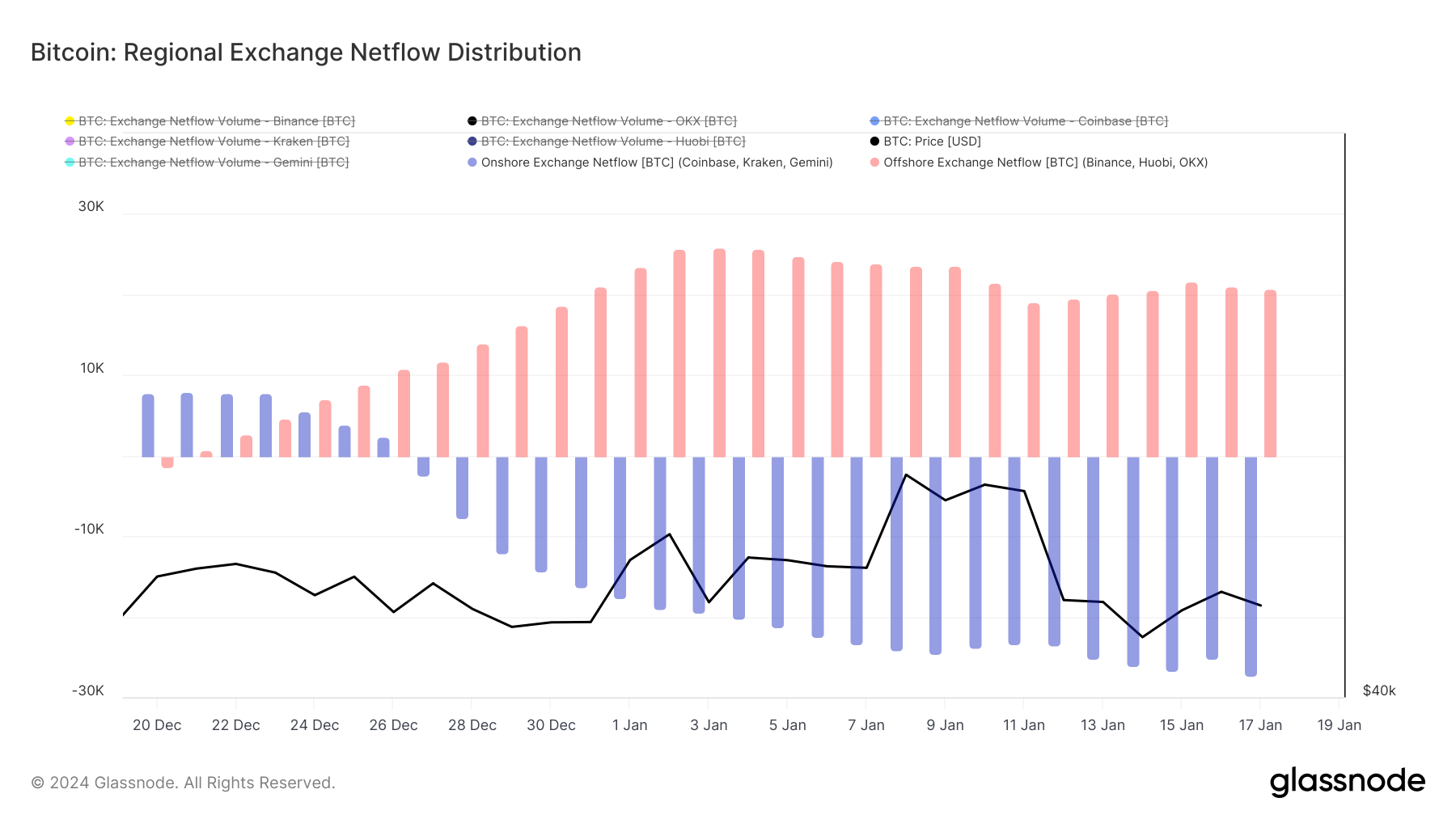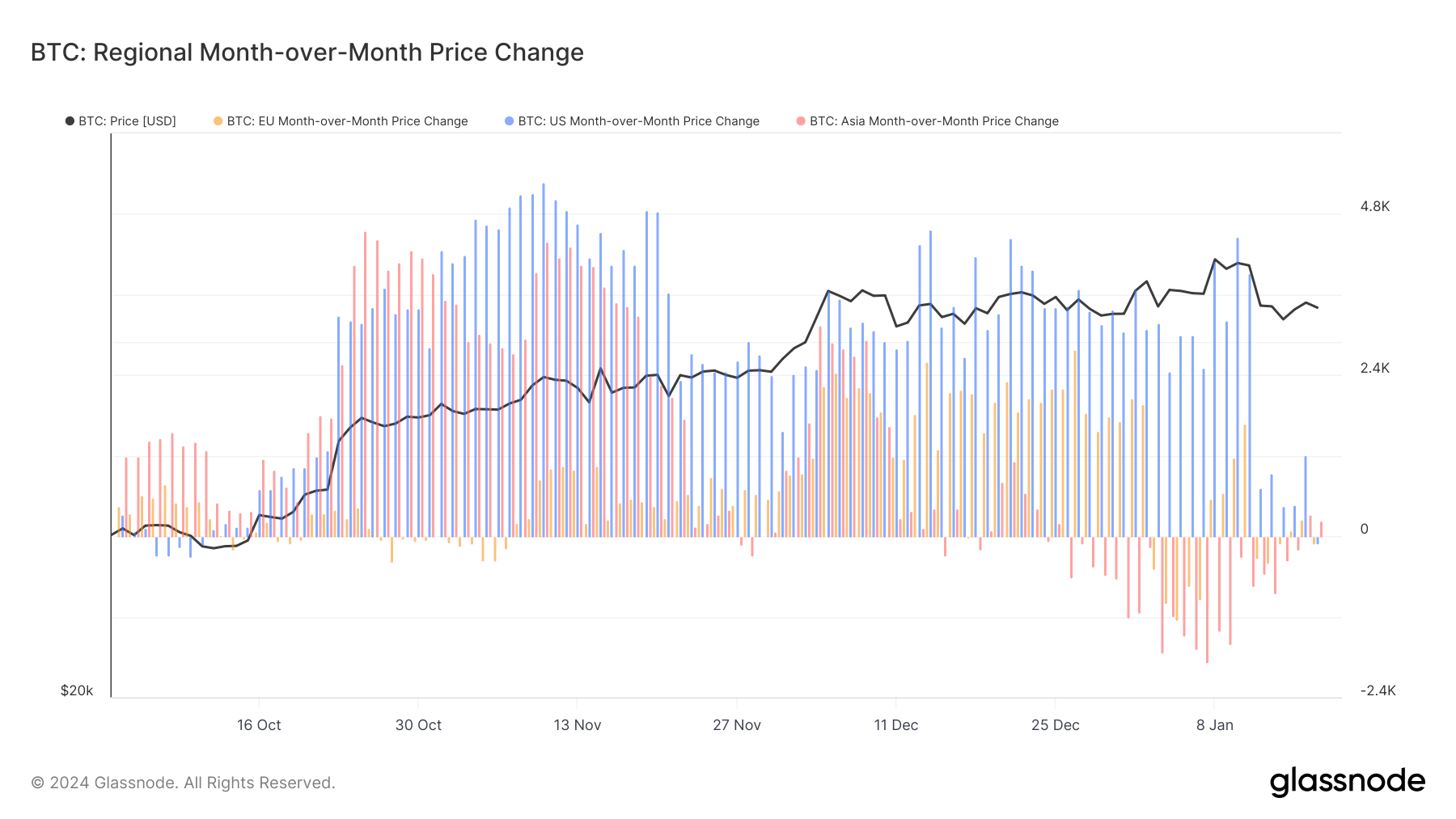The period leading up to the ETF launch was marked by an increase in Bitcoin’s price. And while the launch of the first spot ETFs in the U.S. failed to create the bombastic bull rally many were hoping for; it showed just how significant local markets are in driving global prices.
Specifically, Glassnode’s data on regional month-over-month price changes indicates that the U.S. market experienced the highest rate of price increase compared to Asia and the E.U. This suggests a growing interest in Bitcoin among U.S. investors, likely fueled by the anticipation of the ETFs’ introduction.
Such a regional surge in interest is significant, as it highlights how localized factors, such as regulatory changes or the launch of new financial products, can significantly impact the market.
The U.S. market significantly influences global Bitcoin prices due to its key role in the global financial system. As home to a large number of influential investors and a major hub for technological and financial innovation, trends in the U.S. often shape global market sentiments. Additionally, the U.S. dollar’s status as the primary global reserve currency means that financial movements in the U.S., including in the cryptocurrency sector, have wider global repercussions.
Historically, launching new investment vehicles like ETFs can create bullish sentiment, especially in the region where they are introduced, as they provide a more regulated and potentially safer way to invest in cryptocurrencies.
Further supporting this hypothesis is the analysis of exchange netflow distribution, a measure of how much Bitcoin is entering or leaving exchanges, which shows a consistent pattern of Bitcoin outflows from U.S.-based exchanges like Coinbase, Kraken, and Gemini. Starting from late December 2023, these outflows increased, culminating in a peak on Jan. 17, 2024.
This movement of Bitcoin away from exchanges and likely into private wallets or longer-term holdings suggests a strategic shift by U.S. investors towards holding Bitcoin in anticipation of the ETFs’ launch. Such a shift would naturally decrease the liquid supply on exchanges, creating upward pressure on prices.

The price drop post-ETF launch, from $46,944 to $42,730, illustrates the market’s response to the materialization of a much-anticipated event. This kind of price correction is not uncommon in financial markets following the build-up to major events, reflecting the adage “buy the rumor, sell the news.”
The data from Glassnode demonstrated the significant influence of the U.S. market on Bitcoin’s price increase in the months leading up to the launch of the U.S. spot Bitcoin ETFs. Considering these findings, it will be interesting to observe how the American market continues to shape global cryptocurrency trends in the future. This further confirms that positive local market sentiments, influenced either by favorable regulatory news or broader financial market trends, can have a spillover effect on the global markets.
The post How growing U.S. interest shaped Bitcoin’s price ahead of the ETF appeared first on CryptoSlate.






















